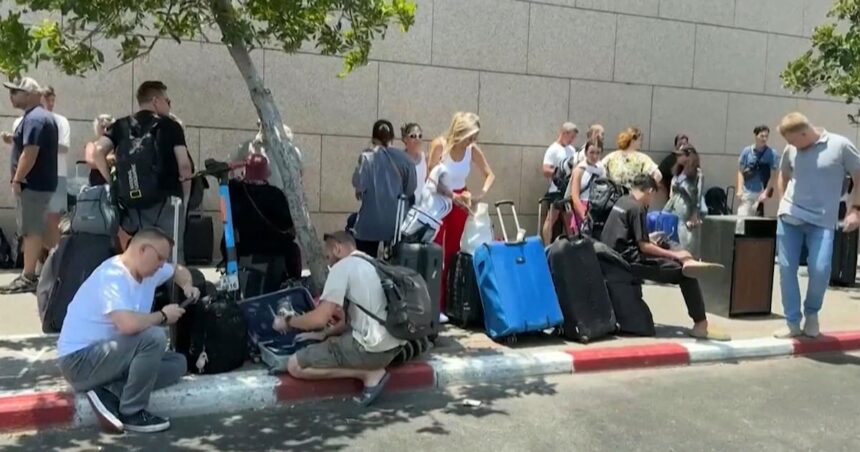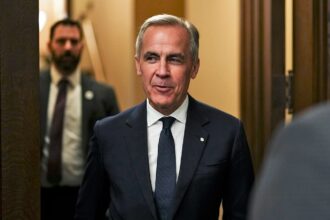In the sweltering heat of Beirut’s international airport, Canadian passport holders stood in disorganized clusters last week, their faces etched with exhaustion and frustration as they awaited evacuation flights that were days behind schedule. For many, this scene represented the culmination of what they describe as a deeply flawed government response to the escalating Middle East crisis that erupted in May 2025.
“I feel like an afterthought in Canada’s foreign policy,” said Leila Mansour, a dual Lebanese-Canadian citizen who waited three days at the airport with her elderly parents before securing seats on a military transport. “The Americans, the British, even the Australians had their people out while we were still getting automated email responses from Global Affairs.”
The Canadian government has defended its evacuation efforts, with Foreign Affairs Minister Sarah Thompson pointing to the “complex and volatile security situation” that complicated extraction operations. According to CO24 World News, over 4,300 Canadians have been evacuated from Lebanon, Syria, and parts of Israel since the conflict intensified on May 18, when cross-border hostilities expanded into a broader regional confrontation.
However, evacuees arriving at Toronto Pearson International Airport tell a different story. Many described a chaotic registration system, minimal communication from consular officials, and evacuation protocols that seemed improvised rather than strategically planned.
“The emergency response line went straight to voicemail for days,” said Omar Khalil, a technology consultant from Vancouver who was visiting family in Damascus when the crisis escalated. “When I finally got through, the person couldn’t tell me when evacuation flights would begin or how to register properly. I ended up coordinating with other Canadians through WhatsApp groups that we created ourselves.”
The criticism extends beyond logistics to questions of equity. Several evacuees reported that those with connections to government officials or prominent business leaders appeared to receive preferential treatment in the evacuation queue, an allegation that the Department of Global Affairs Canada has categorically denied.
Financial considerations have also sparked controversy. Unlike several allied nations that provided free evacuation flights, Canada charged evacuees approximately $400 per person for transport—a policy that came under fire from opposition parties in Parliament last week.
“Making Canadians pay for their own emergency evacuation during a war zone situation is unconscionable,” said Conservative foreign affairs critic Martin Chen during question period. “These are taxpayers who fund our consular services and military capabilities precisely for situations like this.”
A Global Affairs spokesperson defended the fee structure, noting that it represents “a fraction of the actual cost” of the military and chartered commercial evacuation flights. Nevertheless, for families like the Aboudis, who paid nearly $2,000 to evacuate themselves and their three children from Beirut, the financial burden came at an already traumatic time.
“We left everything behind—our home, our business, our community,” said Nadia Aboudi, who arrived in Montreal on June 20. “Then we’re handed an invoice before boarding a military plane. It felt incredibly insensitive.”
The evacuation effort has also exposed apparent gaps in Canada’s diplomatic infrastructure in the region. Budget cuts to foreign missions over the past decade have reduced Canada’s on-the-ground presence, with the CO24 Politics desk reporting that staffing at the Beirut embassy was operating at approximately 60% capacity when the crisis began.
Prime Minister Rebecca Chen has promised a “thorough review” of the evacuation operation once all registered Canadians have been safely transported from the region. Speaking to reporters yesterday, Chen acknowledged “areas for improvement” while emphasizing the challenging circumstances faced by consular and military personnel.
“Our primary focus remains bringing Canadians home safely,” Chen said. “Once that mission is complete, we will conduct a comprehensive assessment of our emergency response protocols.”
For international security experts, the Canadian experience highlights broader questions about Western nations’ preparedness for rapidly evolving crises in an increasingly unstable global environment.
“This isn’t just a Canadian problem,” said Dr. Eliza Montgomery, director of the Institute for Crisis Management at the University of Toronto. “We’re seeing established democracies struggle with the speed and complexity of modern evacuations, particularly when they involve dual citizens in regions with deteriorating security conditions.”
As the last scheduled evacuation flights prepare to depart the region this weekend, the question remains: will Canada implement meaningful reforms to its crisis response systems, or will the lessons of the 2025 Middle East evacuations be forgotten until the next international emergency forces Canadians to flee a conflict zone?










